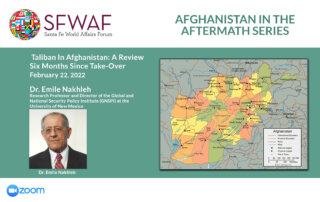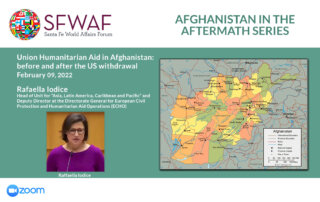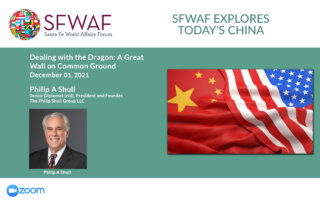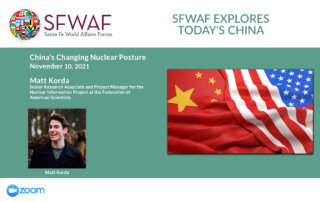The Intent and Reality of Foreign Assistance to Afghanistan: Experience from Obama’s Surge
March 09, 2022
Rebecca Black
The U.S. government spent $145 billion to rebuild and develop Afghanistan over the past 20 years. Funds were implemented by a dozen USG agencies including USAID, a major player in supporting a range of activities, from building roads and power plants to improving education and health, governance, and income generation. Themes of democracy and women’s empowerment played alongside counterinsurgency and stability. Funding was big and pressure strong to deliver results in a country with diverse cultures and geography, and limited access due to the nature of war.

Rebecca Black served 25 years as a Foreign Service Officer with USAID, achieving the rank of Minister Counselor in the Senior Foreign Service. She most recently served as USAID Mission Director for Cambodia and for Mali, managing a diverse portfolio including health, education, agriculture, and governance.
Ms. Black served as the Deputy Mission Director for USAID Afghanistan and as economic and urban environment program director in India, South Africa, and Poland. Ms. Black began her professional career in community economic development in Boston, Massachusetts, following completion of a master degree from the Massachusetts Institute of Technology. Ms. Black now lives in New Mexico, working occasionally on international development assignments, and volunteer engagements.



 Paul Cruickshank comes from a military background, having served with the British Army for 20 years. He is a graduate of the British Army Command and Staff College (1994-1995), and was later appointed Member of the British Empire (MBE) by Queen Elizabeth II in 1999, for his contribution to strategic military planning for peace support operations in the Balkans. His last deployment in the army was to Afghanistan at the end of 2001 as part of the international effort to remove the Taliban regime and commence reconstruction across the country.
Paul Cruickshank comes from a military background, having served with the British Army for 20 years. He is a graduate of the British Army Command and Staff College (1994-1995), and was later appointed Member of the British Empire (MBE) by Queen Elizabeth II in 1999, for his contribution to strategic military planning for peace support operations in the Balkans. His last deployment in the army was to Afghanistan at the end of 2001 as part of the international effort to remove the Taliban regime and commence reconstruction across the country.
 Dr. Emile Nakhleh, is a retired CIA Senior Intelligence Service Officer and founding director of CIA’s Political Islam Strategic Analysis Program Office. He currently serves as Research Professor and Director of the Global and National Security Policy Institute (GNSPI) at the University of New Mexico. He is a National Intelligence Council/IC Associate and a member of the Council on Foreign Relations. Since retiring from the US Government in 2006, he has consulted on national security issues, particularly Islamic radicalization, terrorism, and the Arab states of the Middle East. He has published frequently on the “Arab Spring” in the Financial Times and Cipher Brief.
Dr. Emile Nakhleh, is a retired CIA Senior Intelligence Service Officer and founding director of CIA’s Political Islam Strategic Analysis Program Office. He currently serves as Research Professor and Director of the Global and National Security Policy Institute (GNSPI) at the University of New Mexico. He is a National Intelligence Council/IC Associate and a member of the Council on Foreign Relations. Since retiring from the US Government in 2006, he has consulted on national security issues, particularly Islamic radicalization, terrorism, and the Arab states of the Middle East. He has published frequently on the “Arab Spring” in the Financial Times and Cipher Brief.
 Raffaella Iodice presently serves as Head of Unit for “Asia, Latin America, Caribbean and Pacific” and Deputy Director at the Directorate General for European Civil Protection and Humanitarian Aid Operations (ECHO) after serving as Head of the “Middle East/Gulf, South Asia and Central Asia” at the European Commission “Development and International Cooperation” department (IN TPA).
Raffaella Iodice presently serves as Head of Unit for “Asia, Latin America, Caribbean and Pacific” and Deputy Director at the Directorate General for European Civil Protection and Humanitarian Aid Operations (ECHO) after serving as Head of the “Middle East/Gulf, South Asia and Central Asia” at the European Commission “Development and International Cooperation” department (IN TPA).



